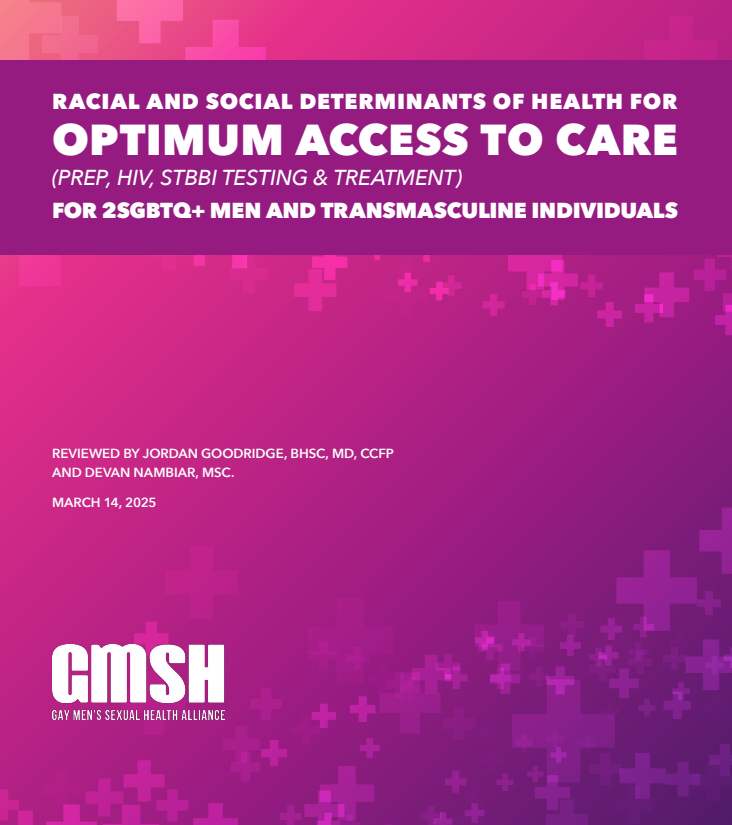In the world we live in today, a holistic view of health and wellbeing must include mental and emotional health alongside physical health. To provide client-centered healthcare that is tailored to the unique needs of queer men, clinicians and healthcare providers should know how queerness intersects with various facets of men's health. This factsheet takes an intersectional lens and looks at different factors such as HIV status, trauma, housing, race, age, ability, class, body image, substance use, etc. and makes suggestions for coping as well as improvements to the healthcare system.
FACTSHEET: Racial and social determinants in sexual healthcare access for queer masculine folks

- Resources
- >
- FACTSHEET: Racial and social determinants in sexual healthcare access for queer masculine folks
FACTSHEET: Racial and social determinants in sexual healthcare access for queer masculine folks
April 08, 2025
This new factsheet reviewed by Dr. Jordan Goodridge and Devan Nambiar is for frontline, healthcare and community workers serving queer and transmasculine guys. Racial and social determinants of health impact 2SGBTQ+ and transmasculine individuals’ access to HIV PrEP, testing & treatment, and STBBI screening.
This document looks at multiple barriers to accessing care including: insurance, cost, location, health literacy, social stigma, racism, ageism, homophobia and transphobia.
It also presents suggestions for how to improve access with tools like: research, government intervention, developing community and local partnerships, and personal advocacy.
